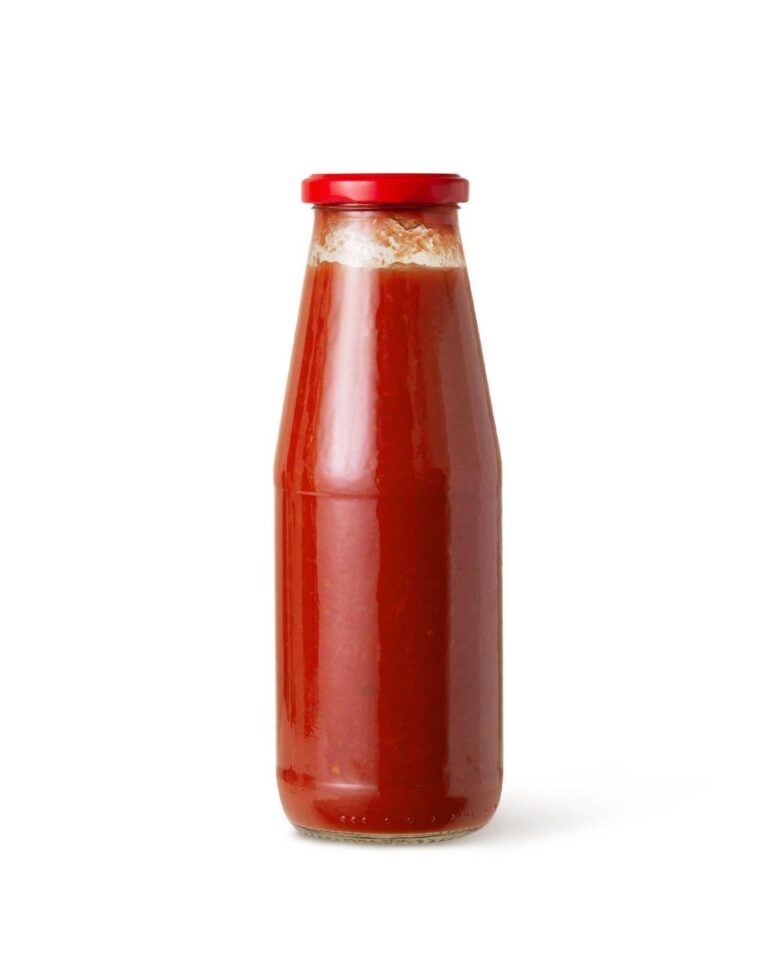Can You Use Fish Sauce Raw? Does It Need To Be Cooked

If you like Southeast Asian food, you’ve probably come across the magical elixir known as fish sauce. Its distinct aroma and rich umami flavor can transport your taste buds to new heights of culinary delight.
But here’s the burning question: Can you enjoy fish sauce straight from the bottle, raw and unadulterated? Or does it require a trip to the kitchen stove for a round of cooking?
Well, my fellow food enthusiasts, prepare to embark on a flavorful journey as we delve into the world of fish sauce and unravel its mysteries.
In this article, we’ll explore the versatility of fish sauce. Its traditional uses as a dipping sauce or marinade to its potential for raw consumption. We’ll uncover the secrets behind its creation, understand its role in Southeast Asian cuisines. In addition to that we will discover how it can elevate the flavors of your favorite dishes.
So, get ready to tantalize your taste buds and find out whether fish sauce is best enjoyed raw or with a touch of heat. Let’s dive in!
The Versatility of Fish Sauce
Fish sauce is a versatile ingredient that enhances the taste of a wide range of dishes. It is commonly used in Thai, Vietnamese, Filipino, and other Southeast Asian cuisines. This pungent liquid adds a depth of flavor that is hard to replicate with other ingredients.
One of the most popular uses of fish sauce is as a key component in dipping sauces, such as nuoc cham in Vietnamese cuisine. These sauces often consist of fish sauce, lime juice, sugar, garlic, and chili. The mix creates a balanced combination of sweet, sour, salty, and spicy flavors. They are commonly served alongside spring rolls, grilled meats, and fresh salads.
Fish sauce also works wonders as a marinade for meat, seafood, and vegetables. Its salty and savory profile helps to tenderize the ingredients while imparting a delicious umami taste. When used as a marinade, fish sauce can be combined with other ingredients. You may try to add soy sauce, ginger, garlic, and lemongrass to create complex and flavorful dishes.
Can You Use Fish Sauce Raw?
The answer to whether fish sauce can be used raw is yes; you can consume fish sauce without cooking it. Fish sauce is typically made through a fermentation process where the fish and salt are left to ferment for an extended period.
This process not only develops its distinct flavor but also helps to kill any harmful bacteria, making it safe to consume without cooking.
Using fish sauce raw can be a great way to add depth and complexity to your dishes. Its flavor becomes more pronounced when used as a finishing touch or a dipping sauce. However, keep in mind that fish sauce is quite potent, so a little goes a long way. Start with a small amount and gradually increase it to achieve the desired taste.
Cooking with Fish Sauce

While fish sauce can be used raw, it is also commonly used in cooked dishes. Cooking fish sauce can further develop its flavors and integrate it more seamlessly into the overall dish. The heat from cooking helps mellow out the pungent aroma of fish sauce, resulting in a more subtle and balanced taste.
When using fish sauce in cooked dishes, it is often added early in the cooking process to infuse the flavors throughout the dish. For example, in a stir-fry, you might add fish sauce along with other seasonings like soy sauce and oyster sauce at the beginning of cooking. This allows the flavors to meld together as the dish cooks, creating a harmonious blend of tastes.
Fish sauce can also be used as a seasoning during or after cooking. Adding a small amount to soups, stews, or sauces can elevate the overall flavor profile, enhancing the umami notes. It can be a secret ingredient that takes a dish from good to exceptional.
Pairing Fish Sauce with Other Ingredients
Fish sauce pairs well with a variety of ingredients, complementing and enhancing their flavors. Here are some common ingredients that work harmoniously with fish sauce:
- Lime: The tangy and citrusy notes of lime juice balance out the saltiness of fish sauce, creating a well-rounded flavor profile.
- Sugar: A touch of sweetness can help mellow out the intense flavors of fish sauce, creating a more balanced taste.
- Chili: Adding a bit of heat with chili peppers or chili flakes can provide a pleasant contrast to the savory profile of fish sauce.
- Garlic: The aromatic and pungent taste of garlic pairs wonderfully with fish sauce, adding depth and complexity to any dish.
- Ginger: The warm and spicy notes of ginger can complement the umami flavors of fish sauce, creating a harmonious combination.
- Herbs: Fresh herbs like cilantro, mint, and basil can brighten up the flavors of fish sauce and add a refreshing element to your dishes.
When using fish sauce with these ingredients, it’s important to balance the flavors. Start with small amounts and adjust according to your taste preferences. Remember, fish sauce is potent, so a little can go a long way.
Fish Sauce Substitutes
If you’re unable to find fish sauce or have dietary restrictions, there are some alternatives you can use to mimic its flavor. Here are a few common fish sauce substitutes:
- Soy Sauce: Soy sauce is a popular substitute for fish sauce, as it also provides a savory and salty taste. However, soy sauce lacks the distinct umami flavor of fish sauce. You may need to add other ingredients like lime juice or vinegar to achieve a similar taste profile.
- Tamari: Tamari is a gluten-free alternative to soy sauce, making it suitable for those with dietary restrictions. It has a similar flavor to soy sauce and can be used as a substitute in equal quantities.
- Anchovy Paste: Anchovy paste is made from ground anchovies and has a similar umami flavor to fish sauce. Use it in smaller amounts as a substitute, as it can be quite intense.
- Miso Paste: Miso paste, made from fermented soybeans, provides a rich umami flavor and can be used as a substitute for fish sauce in some recipes. However, it has a different taste profile, so it may not be suitable for all dishes.
Remember, while these substitutes can provide a similar flavor profile, they may not have the exact taste and aroma of fish sauce. Adjust the quantities and experiment to find the best substitute for your specific dish.
Storing and Handling Fish Sauce
To maintain the freshness and quality of fish sauce, proper storage and handling are essential. Here are some tips to ensure optimal storage:
- Keep fish sauce tightly sealed in its original bottle or transfer it to an airtight container.
- Store it in a cool, dark place away from direct sunlight or heat sources.
- Refrigeration is not required but can help extend its shelf life.
| Shelf Life | Unopened Bottle | Opened Bottle |
| Approximate Time | 2-3 years | 1-2 years |
When handling fish sauce, remember to practice good hygiene. Use clean utensils and avoid cross-contamination with other ingredients.
Fish Sauce Myths and Misconceptions
There are several myths and misconceptions surrounding fish sauce. Let’s dispel some of them:
- Myth: Fish sauce is only used in Asian cuisines.
- Fact: While it is commonly used in Asian cuisines, fish sauce is also finding its way into contemporary Western recipes.
- Myth: All fish sauces taste the same.
- Fact: Different brands and varieties of fish sauce can vary in taste and quality. Some fish sauce may be saltier, while others may have a more pronounced fishy flavor. It’s worth experimenting with different brands to find the one that suits your palate.
- Myth: Fish sauce must always be cooked to be safe for consumption.
- Fact: While cooking fish sauce reduces risks, some cultures and dishes use it raw. However, it’s important to be aware of the potential health hazards and make an informed decision.
Conclusion
In conclusion, fish sauce can be consumed both raw and cooked, depending on your preference and the dish you’re preparing. It is a versatile ingredient that adds depth, complexity, and umami to a variety of dishes. Whether you use it as a dipping sauce, marinade, or seasoning, fish sauce elevates flavors and takes your culinary creations to new heights.
Experiment with different combinations of ingredients and enjoy the unique taste that fish sauce brings to your meals.
FAQs
Can I use fish sauce as a dipping sauce without cooking it?
Yes, you can use fish sauce as a dipping sauce without cooking it. However, exercise caution and ensure that the fish sauce is from a trusted source and stored properly.
Does cooking fish sauce alter its flavor?
Yes, cooking fish sauce mellows its pungency and enhances its umami flavor. It also helps eliminate any potential health risks associated with consuming raw fish sauce.
Are there any vegetarian or vegan alternatives to fish sauce?
Yes, there are vegetarian and vegan alternatives to fish sauce. Soy sauce, tamari, and liquid amino acids are popular substitutes that provide a similar umami taste.
How much fish sauce should I use in a recipe?
The amount of fish sauce needed in a recipe depends on personal preference and the specific dish. Start with a small amount and adjust to taste, as fish sauce can be quite potent.
Can I freeze fish sauce to extend its shelf life?
Freezing fish sauce is not necessary and may alter its flavor and texture. It is best to store fish sauce in a cool, dark place without freezing.
Does the quality of fish sauce vary between brands?
Yes, the quality of fish sauce can vary between brands. It’s worth exploring different brands to find the one that suits your taste preferences.
Are there any fish sauce brands that specifically recommend raw consumption?
No, most fish sauce brands recommend cooking fish sauce before using it in recipes to ensure safety and eliminate potential health risks.






